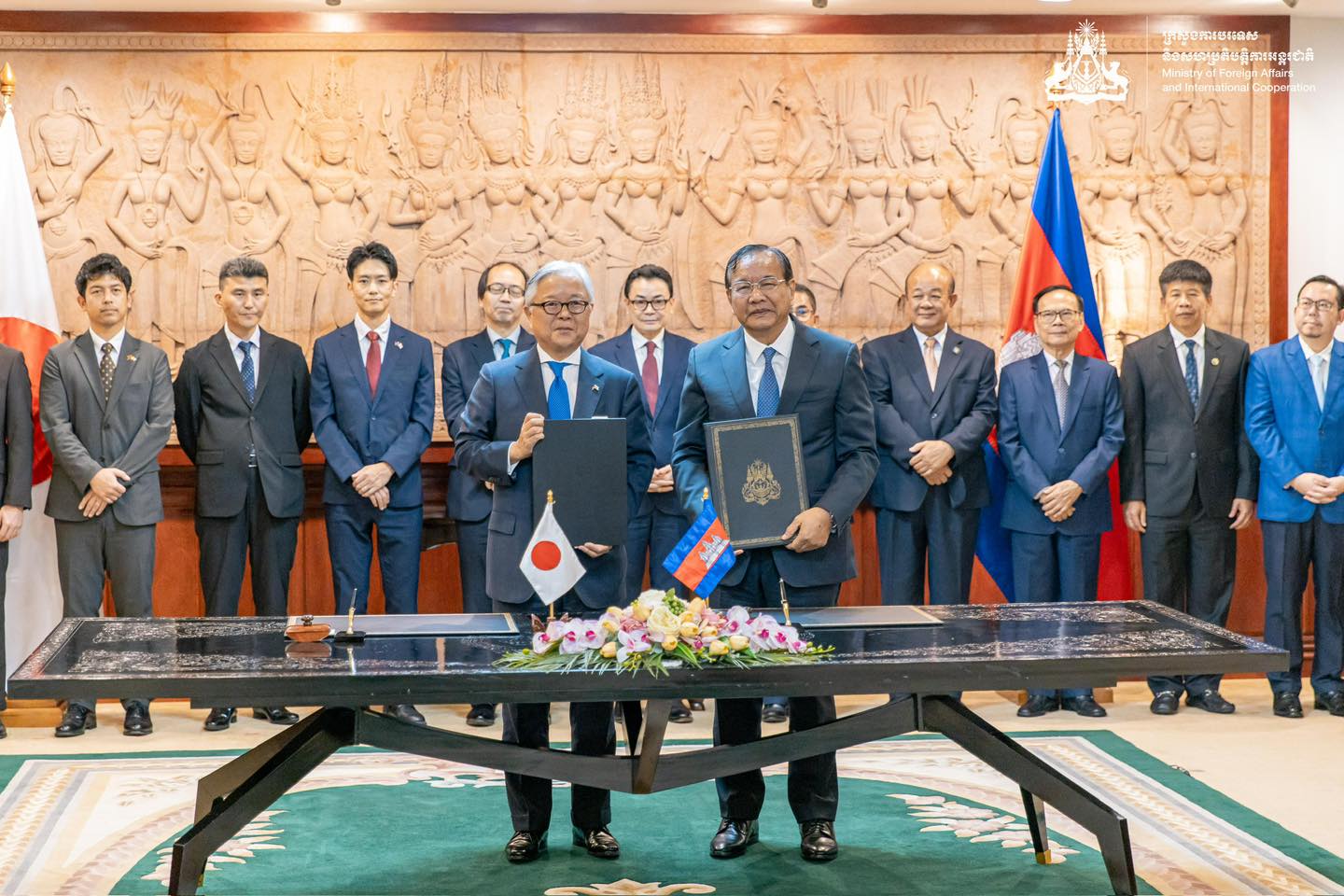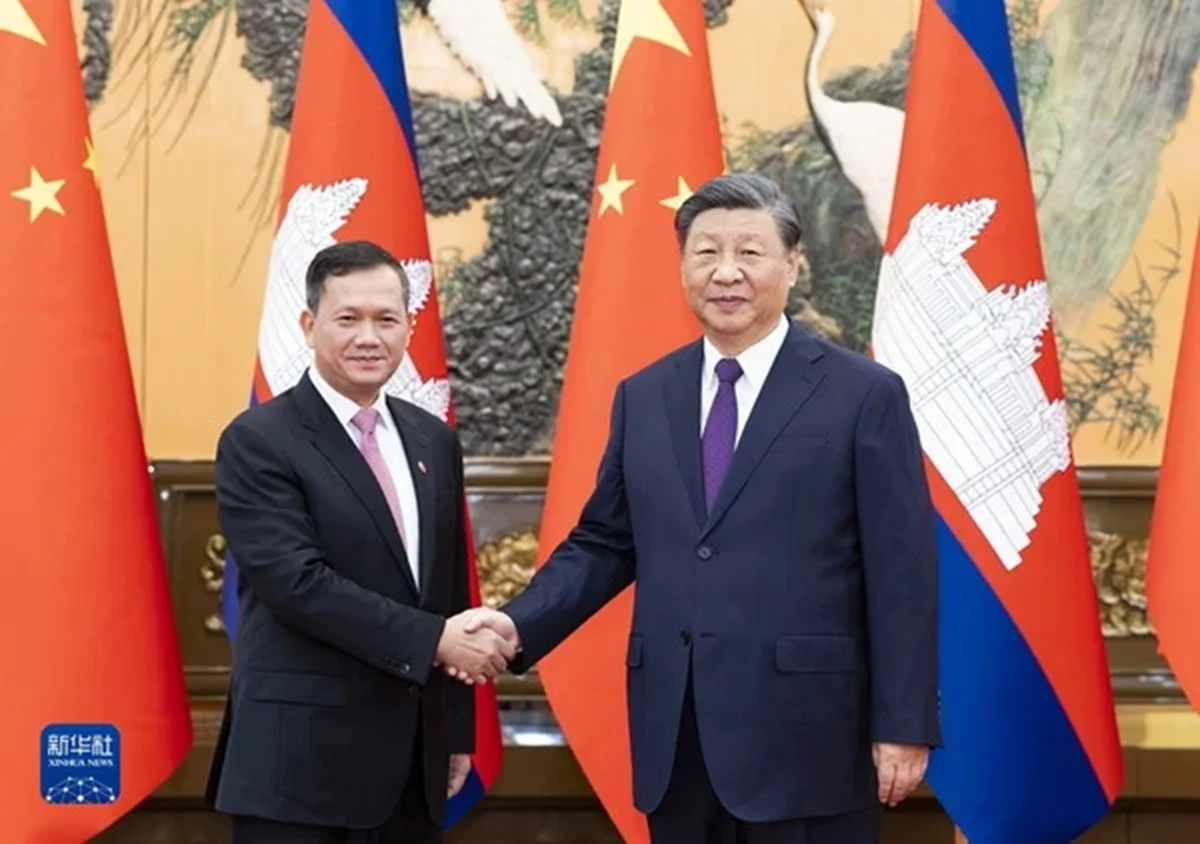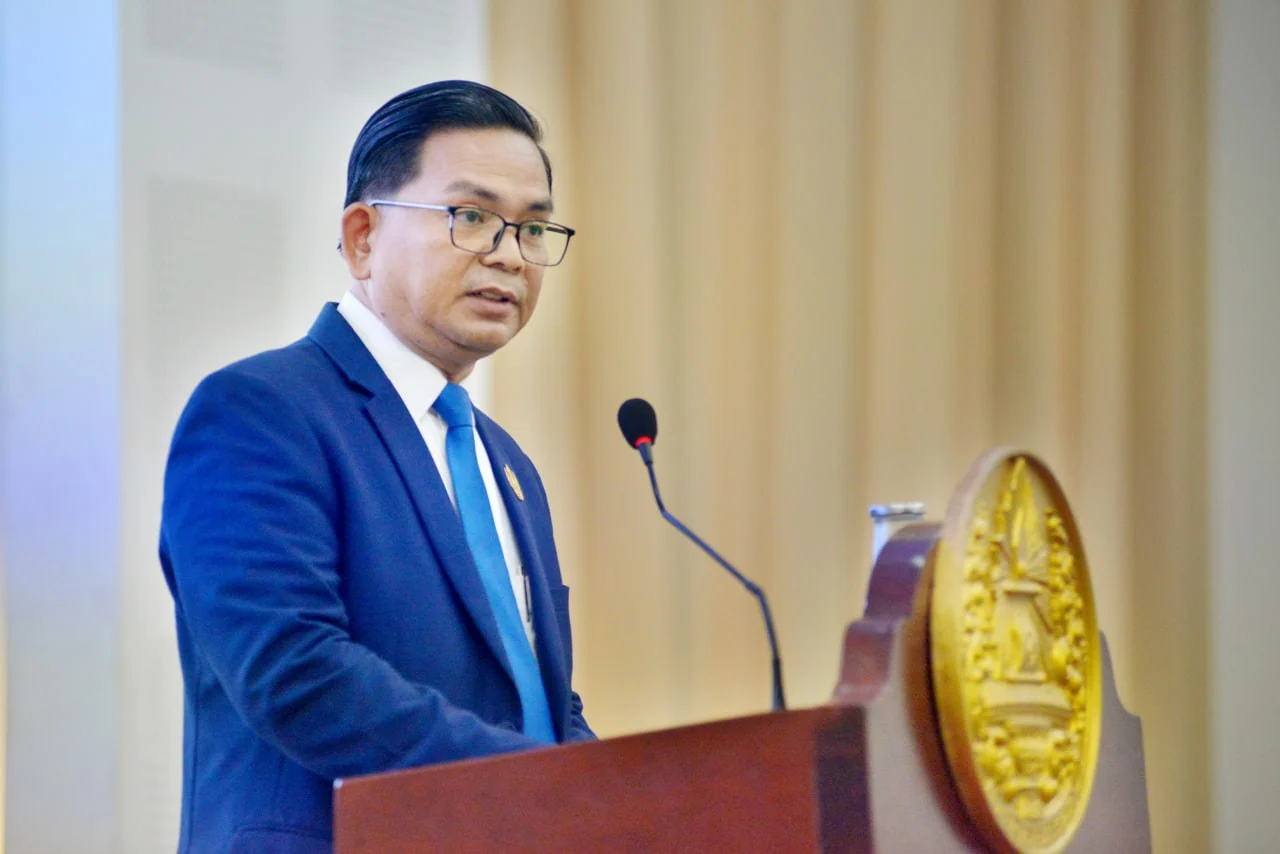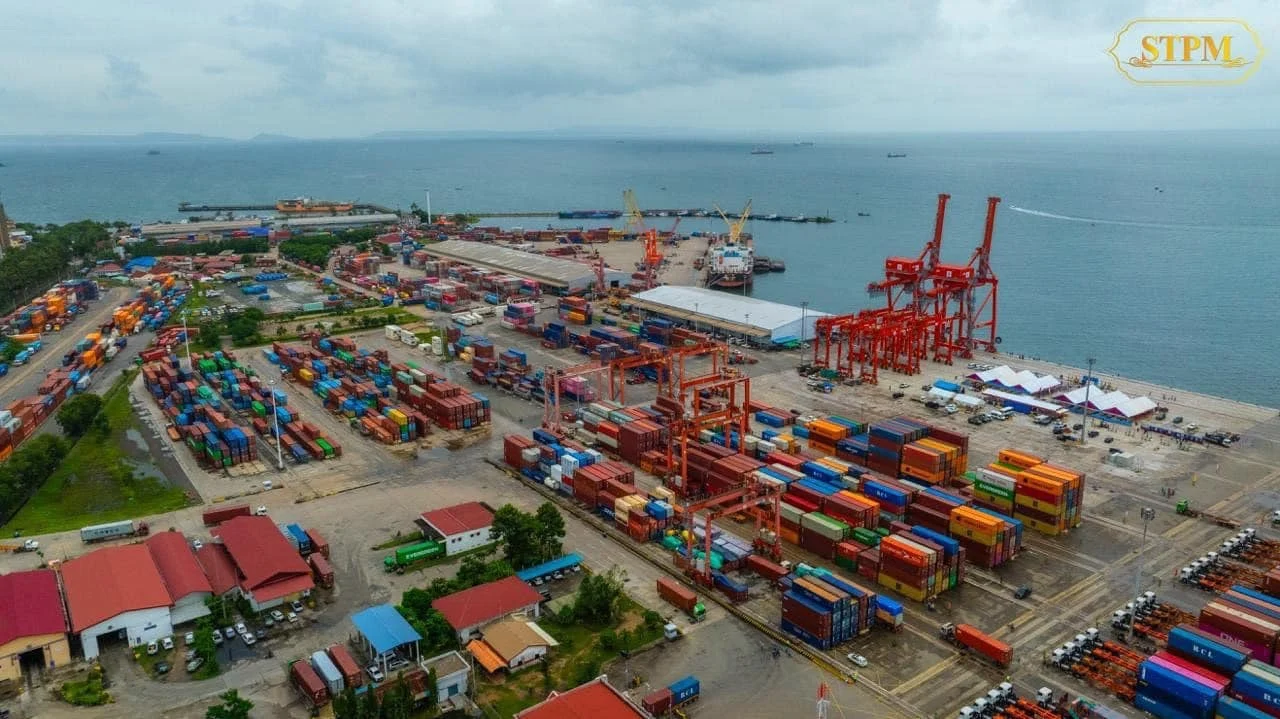Phnom Penh, Cambodia – A significant agreement was formalized on October 8, when Cambodia’s Minister of Foreign Affairs and International Cooperation, Prak Sokhonn, and Japanese Ambassador to Cambodia, Ueno Atsushi, signed a concessional loan agreement totaling 44.437 billion Japanese Yen, equivalent to approximately $296.2 million US dollars, provided by the Government of Japan.
This substantial financial commitment, categorized as official development assistance, is earmarked for two crucial infrastructure projects designed to bolster Cambodia’s public services, as detailed in a press statement from the Ministry of Foreign Affairs.
Specifically, 21.526 billion Yen (approximately $143.5 million US dollars) has been allocated to support the expansion of the Nirouth Clean Water Supply System. The remaining 22.911 billion Yen (approximately $152.7 million US dollars) will finance the third phase of the ambitious project to expand Phnom Penh’s electricity transmission and distribution network.
The Ministry’s statement underscored the enduring nature of this financial assistance, highlighting Japan’s steadfast commitment to advancing Cambodia’s socio-economic development. It further solidifies the comprehensive strategic partnership between the two nations. This collaboration comes ahead of the 75th anniversary of official diplomatic relations between Cambodia and Japan in 2025. Over the years, Japan has played a pivotal role in Cambodia’s development, providing extensive aid for critical infrastructure, including bridges, roads, and the Sihanoukville Autonomous Port, alongside support for national defense and human resource training.
Such international loans contribute to Cambodia’s broader public debt portfolio, which is actively managed by the government. As of the first half of 2025, Cambodia’s total public debt stood at $12.67 billion. A significant 99% of this, amounting to $12.54 billion, constitutes external debt, comprising $7.686 billion in bilateral debt and $4.852 billion in multilateral obligations. Domestic debt accounts for a mere 1%.
According to a report from the Ministry of Economy and Finance, China remains Cambodia’s largest bilateral creditor, with approximately $2.536 billion, representing 33% of the total bilateral external debt. Japan is the second-largest bilateral creditor, accounting for approximately $845 million, or 11%, followed by South Korea and France, each with around $461 million, or 6%.
Despite these figures, Minister of Economy and Finance and Chairman of the Public Debt Management Committee, Aun Pornmonirath, has consistently affirmed that Cambodia’s public debt remains highly manageable, sustainable, and at low risk. This stability is attributed to a robust public debt management system, which encompasses a comprehensive legal framework, clear policies and strategies, thorough operational management procedures, sufficient institutional capacity and human resources, and sophisticated IT systems for operational management and data archiving, crucial for risk analysis and monitoring.
The Minister emphasized the government’s diligent and cautious implementation of strategic measures outlined in the Public Debt Management Strategy 2019-2023. This strategy is guided by five key principles designed to enhance the effectiveness of public debt and investment management:
1. Borrowing credit amounts that are appropriate and sustainable within the national budget and economic capacity.
2. Prioritizing highly concessional loans or those with favorable terms.
3. Directing borrowed funds solely towards priority sectors that foster sustainable economic growth and enhance economic productivity.
4. Ensuring the transparent, accountable, efficient, and highly effective utilization of all credit.
5. Investing credit in public infrastructure projects that meet high standards and quality, aligning with public investment management principles, and addressing new development needs, particularly those related to economic, social, and environmental sustainability, as well as climate change resilience.
Further strengthening its fiscal governance, the Cambodian government, under the leadership of Prime Minister Hun Manet, approved and implemented a new ‘Public Debt Management Strategy 2024-2028’ on July 26, 2024. This updated strategy aims to ensure continued efficiency, effectiveness, transparency, accountability, and sustainability in public debt management.
The new strategy sets clear annual foreign borrowing ceilings. Cambodia plans to borrow between 1.7 billion SDR (approximately $2.3 billion US dollars) and 2 billion SDR (approximately $2.7 billion US dollars) annually from international institutions and development partners. In exceptional circumstances, this annual borrowing limit may be increased to 2.5 billion SDR (approximately $3.3 billion US dollars).
Crucially, the strategy stipulates that the total foreign borrowing will not exceed 10 billion SDR (equivalent to approximately $13.5 billion US dollars) over the five-year period from 2024 to 2028. This comprehensive strategy also extends to monitoring the status and trends of private sector debt, contributing to overall macroeconomic and financial stability in the medium and long term.






